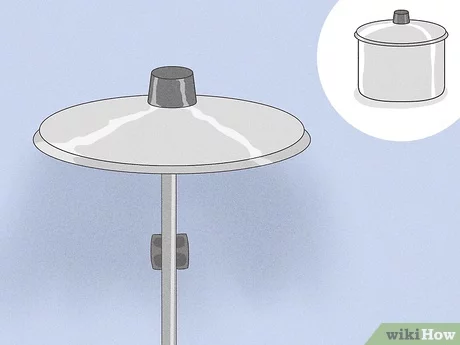The drum set consisted of saucepan covers for cymbals, upturned pans, and an assortment of things that made sounds. And a set of drumsticks. The boy was maybe 14. The set-up was in the sitting room. As you walked towards the house you would hear music, loud music, loud instrumental music. The Shadows were the famous guitar band of the day and the boy drummed his heart out; the boy with the withered arms and withered leg.
His mother said he was a beautiful baby, a gorgeous child with curls. At the hospital where he was born nurses and other mothers would come to take a peek at him because news had spread about this beautiful child, his mother’s pride and joy.
His father’s pride and joy too. At three months old he suddenly had a very high fever. Nothing could get the fever to subside. Someone went to get his aunty, the mother’s sister who was a nurse. By the time she arrived, the infant lay pale and lifeless. It was later confirmed he had contracted polio. This beautiful, gorgeous, laughing-eyed boy was now a cripple. Polio ripped through his system and left him with a completely paralysed left arm, a partially paralysed right arm, and a partially paralysed right leg. Only his left leg was whole. Until he was four years old he dragged himself along on his bottom. Two more children were born, two girls. He watched intently as his younger sister started to walk and he started to lift himself, asking to be helped up. At first, he was able to stand, then, very slowly, he could walk.
He walked with a pronounced limp. His parents watched, hearts racked with grief, but the boy was smiling and happy. He occupied himself with toys or outdoors, played with his sisters and was just a boy. A boy who liked marbles and playing with the neighbourhood boys. Except he couldn’t run, so he couldn’t play cricket or any of the other sports that the children played outside. He didn’t appear to be bothered by this. He had a loud voice and was assertive. He never complained. Another little girl was born into the family. Four years later, when the boy was nine years old, the father took ill and died suddenly. Now the crippled boy had no father and he watched as his mother tried to be brave and strong for her children.
The boy watched as his three younger sisters went to school while he was at home with his mother. She taught him to read and write. He was intelligent and quick to learn. He loved current affairs and as he got older he devoured the daily newspaper and listened to the news on the Australian Broadcasting Corporation’s overseas broadcasts.
Music became his life as he grew into adolescence. The radio, the only means of entertainment in the country and the times he grew up in was everything. He loved Hindi music, soundtracks of very popular Hindi movies (later known as Bollywood movies) which played in cinemas for many months at a time. He listened on the radio, music blasting so loud that if you were approaching the house, you could hear it from a few hundred metres away. Or so it seemed to his sisters, who were embarrassed by the loudness.
When his sisters migrated to a land of plenty, they sent him a beautiful record player and stereo system which he treasured. It was a very poor consolation prize for being refused entry to that land of plenty, refused because of his withered arms, because of his disability. It was the unstated but obvious reason why his family was denied entry.
Later as he became more and more melancholy because nothing seemed to work for him or go his way, he became a fan of the classical music of his land of birth, the place of heat and dust and much beauty. His mother’s heart ached as she watched his struggles: his loneliness, his inability to find a footing somewhere and be something other than a disabled person who depended on others.
At 28 he took his own life. Nothing can describe his mother’s anguish. His family was bereft, and the intense grief of their loss was accompanied by hopelessness. Why did it have to be this way? Why didn’t someone help him? What might have changed the course of events that led to the despair so deep that living was no longer an option? There was also guilt about whether, as a family, they could have done more. They would never know.
In the wake of suicide, there are grieving loved ones, many unanswered questions and much guilt and anguish. I have heard it said that suicide is a selfish act. But I believe that a person considering and often committing to taking their own life is cocooned in a web of despair and can see no way around or out, the sense of hopelessness is so great and overwhelming that ending their life seems to be the only way out of the extreme anguish.
If you or someone you know is experiencing depression, despair, or loneliness, there are services that you can turn to. The ones listed below are just a few. Talking to someone you trust is the first step.
If it’s an emergency, call 000 (if you are not in Australia, call the emergency number for your country)
Beyond Blue: https://www.beyondblue.org.au/about-us/contact-us
Lifeline: https://www.lifeline.org.au/131114/
Suicide Call Back Service: https://www.suicidecallbackservice.org.au/

